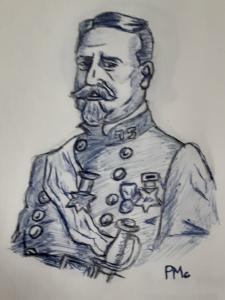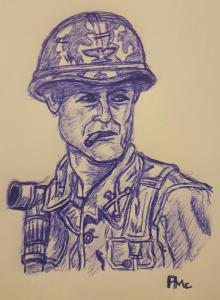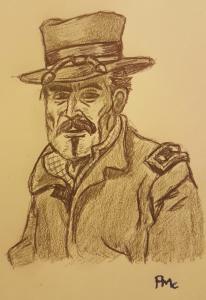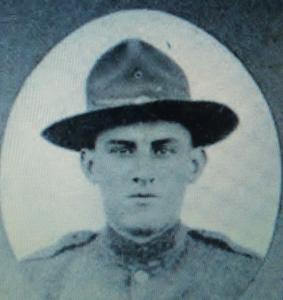![mathias_rp_2lt[1]](https://wp-media.patheos.com/blogs/sites/224/2014/06/mathias_rp_2lt1-198x300.jpg) In his outstanding history of D-Day, Stephen Ambrose describes the conditions that Second Lieutenant Robert Mathias and the men of Company E, 508th Parachute Infantry, he faced as they parachuted over France:
In his outstanding history of D-Day, Stephen Ambrose describes the conditions that Second Lieutenant Robert Mathias and the men of Company E, 508th Parachute Infantry, he faced as they parachuted over France:
The Germans were below were firing furiously at the armada of 822 C-47’s carrying the 82nd and 101st Airborne Divisions into battle. Flakvierling-38s (20mm four-barreled antiaircraft guns) filled the sky with explosions; machine-gun tracers—green, yellow, red, blue, white—arched through the sky. The sight was at once awesome (nearly every paratrooper thought this was the grandest Fourth of July fireworks display he had ever seen) and terrifying. For every visible tracer, there were five unseen bullets. Unseen, but not unheard—the bullets rattled against the wings of the C-47s, sounding like rocks being shaken in a tin can. Flying at less than 1,000 feet and slower than 120 miles per hour, the planes made easy targets.
As Lt. Mathias was ready to jump from the plane, he was hit in the chest by flak, “a blow that would have felled an ox.” He got up to his feet, yelled to his men, “Follow me!,” and jumped wounded. He died in his chute. Mathias was the first American officer killed by German fire on D-Day.
Born in Maryland in 1915, Mathias was an outstanding soldier, athlete and all-around leader. His commanding officer said of him, “He will either earn the Medal of Honor or be the first 508th man killed in action.” Like many men of World War II, Mathias’s faith sustained him through the hard times, as Ambrose notes:
Mathias was a devout Catholic. He went to Mass as often as possible and did all he could to make church attendance convenient for his men. He never swore. His company commander said of him: “He can hold more than his own with the toughest man alive; yet you won’t ever hear him use hell or damn.
Today, as we commemorate one soldier who fell at D-Day, we remember all who made the ultimate sacrifice. Ambrose writes: “They were soldiers of democracy. They were the men of D-Day, and to them we owe our freedom.”











